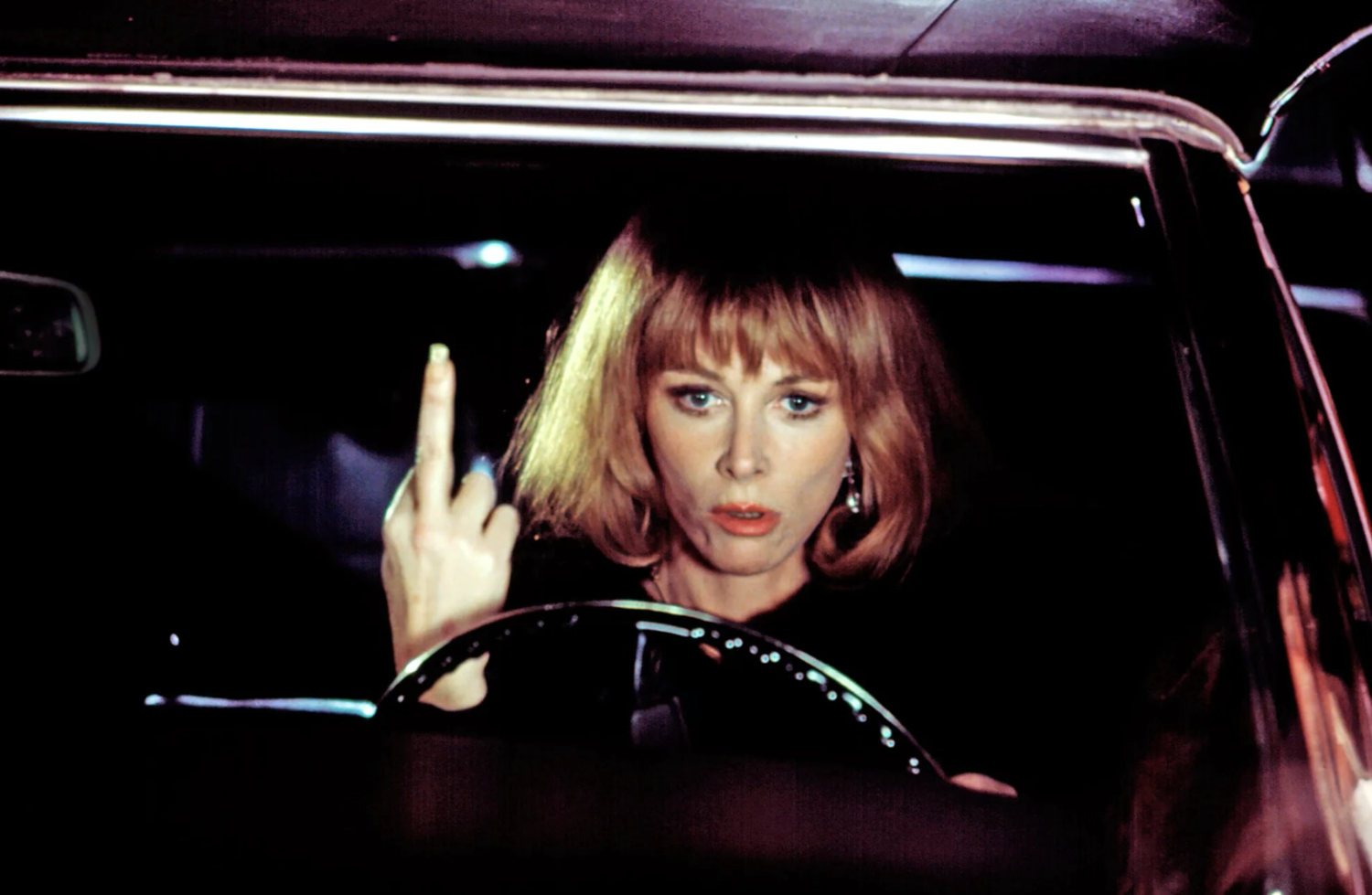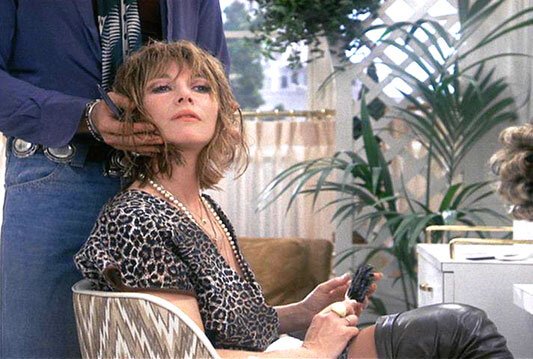Hollywood legend Lee Grant talks being blacklisted, 'Valley of the Dolls', and the re-release of her documentary films
Inside her sister-in-law’s bedroom, sheltered during this global pandemic, multi-Oscar winner, Emmy winner, once blacklisted, and first ever female DGA winner, Lee Grant, gives us some insight into her impressive career as an artist. Grant is famous for starring in queer favorites such as ‘Valley of the Dolls’ and ‘Shampoo.’ In ‘Valley of the Dolls,’ Grant plays Miriam, a role that was purely a money job and in speaking about the film itself, “ [a] grungy book into a grungy film.” Working with the director, Mark Robson, Grant mentions he was an editor before this and was not a director, and recalls Robson stressed too much on the pacing and not enough on the film’s storytelling. Grant is amused over how the queer community made a play out of it in 1995. She attended the show and remembered everyone, including herself, laughing and rolling over the aisles.
In the 1975 Oscar-winning film ‘Shampoo’, Grant plays Felicia. She recalls that time of her life as a glorious one. Everyone in the cast was old friends, and that it was that time in Hollywood when the work was part of the social life and when the social life was part of the work. She would party every weekend at Michael Douglas’s house and then on Monday go to work and see each other again. It was vibrant, golden, social, “smoking, drinking, never thinking,” it was all grass, weed, and coke, and fun, and “great filmmaking.” On ‘Shampoo’, Grant sums it up perfectly:
“[From] one ravenously sexual woman to another, ‘Shampoo’ was a brilliant camera held upon those years in Hollywood, when everything was money and how you looked and the kind of frustration and anger [that comes from that].”
Grant’s Oscar win for ‘Shampoo’ was much more than just a win; it was a message to Hollywood and the HUAC (House Un-American Activities Committee) that Grant was welcomed back from being blacklisted. HUAC was in charge of the modern-day witch hunt blacklisting communists in America. It has since been changed to today’s House Committee on Internal Security. Grant was blacklisted ultimately because her husband, Arnold Manoff, was ratted out as a communist by a blacklistee. She was forced to name someone as a communist, and her only two options were to name them and be able to work, or not name them and be blacklisted. She never mentioned a name out of protest to the process being done by the HUAC. Grant was only a young actress when this happened at the beginning of the 1950s. She was a recent Oscar nominee for her first on-screen performance in 'Detective Story,’ where she won Best Actress at Cannes Film Festival. For 12 years, Grant would be blacklisted from doing any new films or major television roles and was only allowed on Broadway.
“[Ages] 24-36, I was blacklisted. Those 12 years created a very aware politically me. All of the documentaries I made afterward came from a period I learned how to fight. It was a very big education for me because I was a riverside drive girl.”
The documentaries Grant speaks of are what began a very fruitful career as a film director. HBO was Grant’s principal sponsor, as they hired her to make a good amount of documentary films showcasing the underbellies of America. The first few focused on women’s issues, either abusive marriages, wrongful arrests, and treatment in the workplace. All of this work led her to a moment she felt “undid” from filming these stories on the Manson Girls in California and women in jail because they were in relationships where they fought back and killed their husbands. It just “undid” her. Grant decided she needed to step out of these stories and find some queerness in the world. She saw the stage production of ‘La Cage Aux Folles’ and was inspired to look deeper into the very hidden world of the queer community in 1980’s America. And of course, how things always turn out, when you open the door to another world, it has its own terrible sadness, wrongness, and “unspeakable terrible things.”
In her film ‘What Sex Am I?’ Grant steps into the lives of the queer community, looking at trans lives in the ’80s. Just like ‘Paris is Burning,’ these films were from white female directors who had the “privilege” to step in and show our stories to the world:
“I felt that with all the documentaries, like ‘Alice in Wonderland,’ that suddenly I was privileged to enter a world that was so hidden. And given access by the people in that world to say come in, we need to tell our story; we need to share this with you. It’s been my privilege to knock on these doors and to have them open to a world that had to be shown.”
She eventually became the first female director to win a DGA for the film ‘Nobody’s Child’ in 1986, a film about a real-life woman’s journey out of an asylum. In 1986, she won her second Oscar for her documentary film ‘Down and Out in America’, which tackles many issues we still see today in rural America. Not much has changed since the ’80s, and her film brings us to ask a lot of similar questions today. Grant prominently points out that there was never any backlash on making any of these documentaries. She said HBO encouraged her as much as they could to get these stories out there. It wasn’t until she made ‘Women on Trial’ in 1992 when Grant would receive her first push back and would be her last documentary for HBO. The film takes place in Texas, where judges took minor children from their mothers and gave them to the fathers who abused them. The judges sued HBO, and HBO eventually had to pay millions of dollars. The film was only shown once and is “one of the saddest moments in her life” that these judges and stories couldn’t be shown to the public.
One of the most popular and, shall we say, cultish performances Grant is known for is David Lynch’s ‘Mulholland Drive’ as Louise Bonner. The horrifically creepy yet captivating fortune teller captured our hearts in a singular scene with Naomi Watts’s character. Beyond the film’s central lesbian love story, as we all know, we queers love the horror and the weird. The entire film is dressed in that way; Grant’s interpretation of her character only more so. The mere mention of this performance to Grant, however, led her to comment:
“Why do people even mention [Mulholland Drive]? I tried it as a tiny part to see how [David Lynch] worked as a director.”
To be an award winner, female, and to work after coming out of being blacklisted and fighting against others being blacklisted, is a testament to Grant’s bravery, skill, and determination to be the artist she was always meant to be. So many of us in the queer community can connect to Lee Grant, like how society treated the queer community during the AIDS epidemic and before governments started making fundamental changes in laws for queer citizens, being blacklisted in our own lives for being queer. Grant was pushed aside, especially as a woman whose shutout from Hollywood in the 50s was detrimental to her career during those twelve years. Some of these struggles are apparent in her role of Felicia in ‘Shampoo,’ a significant queer-identifying type role.
“…12 years of drought [being blacklisted] 12 years of heaven [after blacklisted]. Getting out and being okay is such an incredible story, to come from that and evolve from that.”
Nevertheless, she has won a lot of recognition and awards on multiple different platforms. Her life has sprawled nine decades, and her birthday is still a beautiful mystery; her official age is unknown. For the first time, all of Grant’s work has been re-released and made available to rent on various streaming platforms, including ‘What Sex Am I?’
Now more than ever, her work is easily accessible, and although Lee Grant prefers not to look back at the past, it is invaluable for film scholars and fans to finally have access to her essential works.
—
John E. Kilberg is a Brooklyn filmmaker, writer, and the host of WUSSY Movie Club podcast.
Archive
- February 2025
- November 2024
- October 2024
- September 2024
- August 2024
- July 2024
- June 2024
- May 2024
- April 2024
- October 2023
- July 2023
- June 2023
- May 2023
- April 2023
- March 2023
- February 2023
- June 2022
- April 2022
- March 2022
- January 2022
- December 2021
- October 2021
- September 2021
- August 2021
- July 2021
- June 2021
- May 2021
- April 2021
- March 2021
- February 2021
- January 2021
- December 2020
- October 2020
- September 2020
- August 2020
- July 2020
- June 2020
- May 2020
- April 2020
- March 2020
- February 2020
- January 2020
- December 2019
- November 2019
- October 2019
- September 2019
- August 2019
- July 2019
- June 2019
- May 2019
- April 2019
- March 2019
- February 2019
- January 2019
- December 2018
- November 2018
- October 2018
- September 2018
- August 2018
- July 2018
- June 2018
- May 2018
- April 2018
- March 2018
- February 2018
- January 2018
- December 2017
- November 2017
- October 2017
- September 2017
- August 2017
- July 2017
- June 2017
- May 2017
- April 2017
- March 2017
- February 2017
- January 2017
- December 2015
- November 2015
- October 2015
- September 2015
- August 2015
- July 2015
- June 2015
- May 2015
- April 2015











